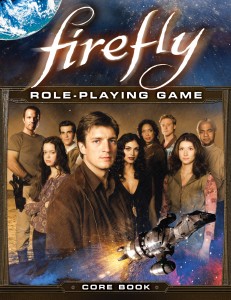
Haven’t blogged for a while, so today I wanted to get back to talking about process. The topic of my post today is a long-ish essay about dealing with negativity and preventing burnout. As it turns out, I have so much to say on the topic that I need to cut this off at “part one.” However, I do wish to be clear and reemphasize that this is not a post advising you what to do, but how I deal and view this stuff. I believe very strongly in doing what works for you, and I feel there’s a lot more to being online and engaging with people than at first glance.
I am a full-time writer, so my purpose for being online might be different from yours. There is a lot of pressure, in general, to be online because this is a way to network and get gigs, engage with fans, and allow people to get to know you. When my work falls more into the realm of administrivia, I can finish some tasks while having both monitors open, which allows me to scroll through my feeds. Others, I can’t because I need to focus. When I need to write, however, the only time I pop open Twitter or Facebook is when I’m at a stopping point and I need a break. Except, even that’s changing as my productivity, travel, and time outside increases. Generally, I’m limited to a total of an hour a day across multiple sites, and when I’m at a convention it’s intermittent.
Assessing the Level of Negativity
Let me start by explaining that I feel there are many reasons why someone posts an emotion-filled rant or criticism. (I’m oversimplifying to avoid pinpointing specific subjects, so please forgive me on that last.) Sometimes, it’s to say: “Please, acknowledge that this terrible thing has happened.” Other times, it comes down to: “You must respond to the fact I’m upset or else.” Or “You must change this because I don’t like what you did.” Or, which is often the case for me: “Let me blow off steam so I can discharge this negativity I’m feeling and get back to the task at hand.” I am more likely to respond to someone if the tone of the post shows me that I can engage in conversation with them, to speak from a position of mutual respect. (You’ll hear me talk more about that at a later date. Thank you, Victor Raymond.) So, I often filter posts based on tone without realizing it.
When I read people ranting or swearing or getting up on a soapbox, I imagine their voice in my head is yelling at the reader. Yell at me in real life? I have two choices: either I walk away, or I yell back. Online, it is easier to walk away because I can physically shut it off by hitting the block button or unfriend or what have you. Often, it’s not the comment that pisses me off. Nope. It’s the fact that I got suckered into spending my emotions and investing time in a (usually) total stranger’s rant or accusations designed to push everybody’s buttons. That’s an emotional investment I don’t need to make, because that distracts me from my work and too much of that is not healthy. When the rant or negativity comes from someone I do trust, then I tend to regard that comment differently because I have a connection to that person. However, usually? People know me well enough to e-mail me and deal with any issues we might have, than to address them in a public forum. Key words here: public forum. After all, the reader doesn’t know I have a history with that particular person and that, too, can lead to a lot of misunderstanding. (See also: why cracking jokes online is F-Bomb’ing hard!)
The thing I’ve found, is that the reason why all these arguments are happening is because we lose the art of conversation when we cannot detect semantic meaning or emotional inflection and we only have the bucket, the container to focus on. Words. How many times have I tried to start a conversation with a question, and instead I get “educated” as if I know absolutely nothing? Words we speak don’t always translate well on the internet; nor do the words in our head. That, to me, is what posting on the internet is. Facebook and Twitter… Unless people are curating your Tweets or thinking about them ahead of time, it’s the flotsam and jetsam originating from your brain and being dumped into a computer screen, because there’s no filter there other than the one we all make yourselves. And, make no mistake about it, there are people who are specifically and intentionally trying to start a fire for whatever reason.
Personal Attack vs. Personal Agenda
When the negativity is personal, either about me or my work, then I assess whether or not it’s worth dealing with. In my experience, regardless of how that post comes across, the vast majority of the time comments are not personal. Even with extreme cases, trolls are using a public persona as an excuse to be “heard” for whatever point they need to make–and they’re not always emotionally mature. This is a way to silence voices that have been quiet for so long and are just now daring to speak up.
Cuing off of that… I’ve heard a criticism that silence is consent. Oh, but do I ever disagree with this, because the people who say that are assuming that all readers know what’s happening at all times. So, sometimes silence means that reader is ignorant of what is happening. Nine times out of ten I’m finding out about kerfluffles after the fact, which then means I have to read up on what actually happened which again, is another time sink. Then, another writer (usually John Scalzi or Chuck Wendig) addresses the issue so I don’t feel there’s a point to me discussing that particular subject. Too, silence can also be a form of self-insulation to protect oneself, it can be a way to protect other people and, which is usually the case with bullies, a sign of fear and intimidation as well. It can also happen for the simple fact that crafting a response with a solution that works best for all parties involved takes time. I realize that the internet is instantaneous, and while writing a response might seem like it’s not a big time investment? Figuring out a solution often is–especially when there is money and/or legal implications involved.
Not being able to see people’s faces or connecting that person to a human being means there’s a certain level of anonymity that allows a lot of crappy things to happen. Does the Invisible Human syndrome matter? To me it does, because I am not online to talk to robots or engage with people that are assholes. I’m visibly here and I am putting myself out there, because I want to connect to readers, to people I do find something in common with or, which is the case with open development or online critiques, hear critical feedback that’s about the work after the reader has read it. Those things? Are the exact opposite of the negativity that’s so rampant online. And, in my opinion, the quick, stupid, offhanded comments are getting worse as mobile phone engagement goes up.
In general, people aren’t thinking as deeply as broadly when they post as I might want them to, because their usage isn’t as deep or in the same context as mine. I have seen, over and over again, people post without actually reading the thing they are posting about. Why should I overreact to a stupid comment by analyzing it to death and engaging? Again, it goes back to that time investment, and the bulk of my time has to be spent on writing, pitching, revising, etc. otherwise I lose money because I only have so many hours in the day. That’s not to say I don’t make waves or care about issues or suggest ideas or discuss heady matters to find solutions. Simply, the way I choose to be a human being on planet earth, to make my corner of the universe a better place, isn’t the same way somebody else might. I feel very limited by the internet medium, so my choice is to focus on the people I do know or come into contact with.
Limitations on Responses
I realize that there’s a need to blow off steam, swear, rant, and be completely negative, especially in response to something that happened. The occasional venting I get. I really, really do. I almost got killed last week because a driver thought a crosswalk was “optional,” for example. However? Some people don’t “get” to even do that. I certainly feel I can’t rant on any sort of regular basis. It’s not because I don’t have the ability to. It’s because I have a public profile and I am online, primarily, for work.
In a lot of ways, I feel that the assholes take advantage of people they feel are untouchable or have boundaries–which is why some writers insulate them with fans. (Sure, I’d love that, too, but I’m not going to get “fans” by being an internet celebrity. I care more about readers.) Or, alternatively, I’ve seen trolls attack people who they believe don’t “belong” in the public sphere primarily because they don’t want to hear about that person anymore, so why should anyone else? Their targets don’t “deserve” success (whatever that means), thereby taking the whole concept of “my internet” to the extreme. Usually, which is the saddest part about this, it’s because that particular person didn’t get the acclaim they feel they deserve, or they didn’t get picked for that role or what have you.
I’m primarily online to connect with my peers–people who don’t know me very well–and I mentioned my time is limited. If the time I do spend online is negative, then there’s nothing to counterbalance that and I will collapse upon myself and not work. Being too negative has real world consequences on my health, my career, etc. Also, I find it’s not the trolls or the people responding to me that I need to worry about, it’s the people who are silent–and there are many of them–because what I post is public and permanent. Two weeks from now, five years from now… Sheesh. I can’t tell you how many times I’ve had the conversation about what I’ve posted online–and that’s me, with my limited reach! People take snippets of what’s written out of context all the damn time. For all these reasons and more, this is why I feel most of my rants hurt rather than help me. Sometimes, the occasional rant does show that I am a human being, and not a robot. That part is great! (As I reluctantly must admit that I am, indeed, human.) But, the purpose of my rant is to blow off steam, and in all honesty I really don’t need to post on Facebook to do that so I try to limit how much I do that.
Paying the Assholes
Some people, the ten percent of the population who are assholes, are bolstered by the fact that they now have an audience when in real life? They don’t and no one cares. (And yes, I feel very comfortable saying that assholes exist and that there will always be assholes.) I cannot, despite how hard I try, convince or explain to someone who doesn’t understand that all the -ists and -isms and -phobias out there that you can think of actually do exist–because they don’t care about other people, they only care about themselves. The trolls, the extreme version of what it means to be negative, are not online to learn. They are online to be right, and to have an audience that shares those views. This is the law of numbers. No one might listen to them in the real world, but every f-bomb’ing time someone shares a post, that encourages them to continue. They get “paid” more for being a jerk online than they do in real life, because there’s no consequences to that online act just yet.
So what do I do? Well, the only thing I can control then is how I respond when a comment applies or I read one. I can either shine the spotlight, which is a choice, or I can go on with my day. Or, alternatively, I can actively counteract that trollness by understanding my connections aren’t just following me. The more connected my readers get, the more people they follow, the more my posts are read alongside Game of Thrones spoilers and fan squeeing about Star Wars and the latest kerfluffle and what have you. If I keep paying the assholes, over and over again, then they will get louder–and that’s often the case. Too, then I become known as the person who outs the assholes, but for me I feel that does not benefit my work in any fashion whatsoever. But there’s the flip side to this, too. I hear so often about what people are doing wrong. What about the writers and game designers and artists and etc. who are doing “it” right? I want to hear about them, promote them, engage with them! Trying to find people who are positive sometimes is difficult when negativity is more rewarded than the big shiny.
I feel there are plenty of people who are already boosting negative signals, analyzing them, and creating discussion platforms for people to engage. Thank the stars for them. At the same time, I cringe every time I see someone link to the latest asshole, because engagement is the commerce of the internet–getting “paid” in clicks, links, page views, RT’s and shares. That is how the trolls get paid and validated, and this is why our media is so inflammatory right now. This is, too, why sites are targeted with a Denial-of-Service attack, as a way to stop “paying” those sites and silence them. It’s ironic, really, because the intent is often: “Here’s what this jerk had to say, don’t listen to them!” Only it turns into: “Here’s what this jerk had to say, you must read what they wrote before you ignore or condemn them.” I’ve spent a lot of time in eCommerce-land with an emphasis on analytics. Positive news doesn’t get the same level of engagement as negative, and when the internet is geared to reward negativity, then that’s what people are gonna focus on. Me? I’m pretty stubborn, so F-Bomb that.
To wrap up part one, I want to share with you something I think about often. What I worry about, is not what the trolls are doing. What I worry about? Is the effect of the full enchilada. The bitter taco. What impact does all this negativity have on myself and other people–especially new-or-midlist writers? Because what happens is this: people only have so much time for negativity, and there are plenty of horrible problems to care about online and in the real world. The negativity that relates to us, however, in genre and gaming makes it more difficult to be excited to become a part of the overall community. The harder it is to work? The easier it is to throw in the towel, or avoid conventions, or ignore the discussions that have to happen in some fashion. After all, what’s the point of putting up with that amount of vitriol if the rewards aren’t equally as great? Ergo… Burnout.
Comments are open on this post. I am moderating them. Part Two will happen either later this week or next week. ‘Til then…
Mood: Waxing Philosophical
Caffeinated Beverages Consumed: Surprisingly? One pot of coffee.
Work-Out Minutes Logged Yesterday: Convention recovery.
In My Ears: Compy fan. White noise. Zzzzzz…
Game Last Played: Ni No Kuni: Wrath of the White Witch
Book Last Read: The Scar by China Mieville
Movie Last Viewed: Pacific Rim
Latest Artistic Project: Beading!
Latest Fiction/Comic Release: Last Man Zombie Standing.
Latest Game Release: Gothic Icons and Smuggler’s Guide to the Rim
What I’m Working On: Read my latest project update.




